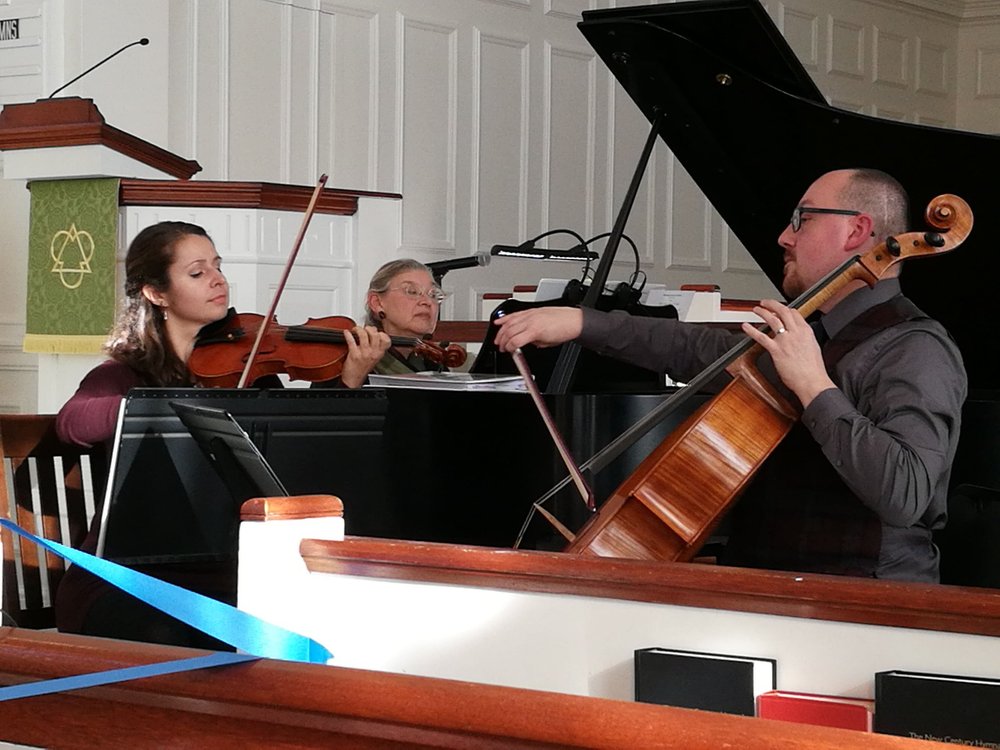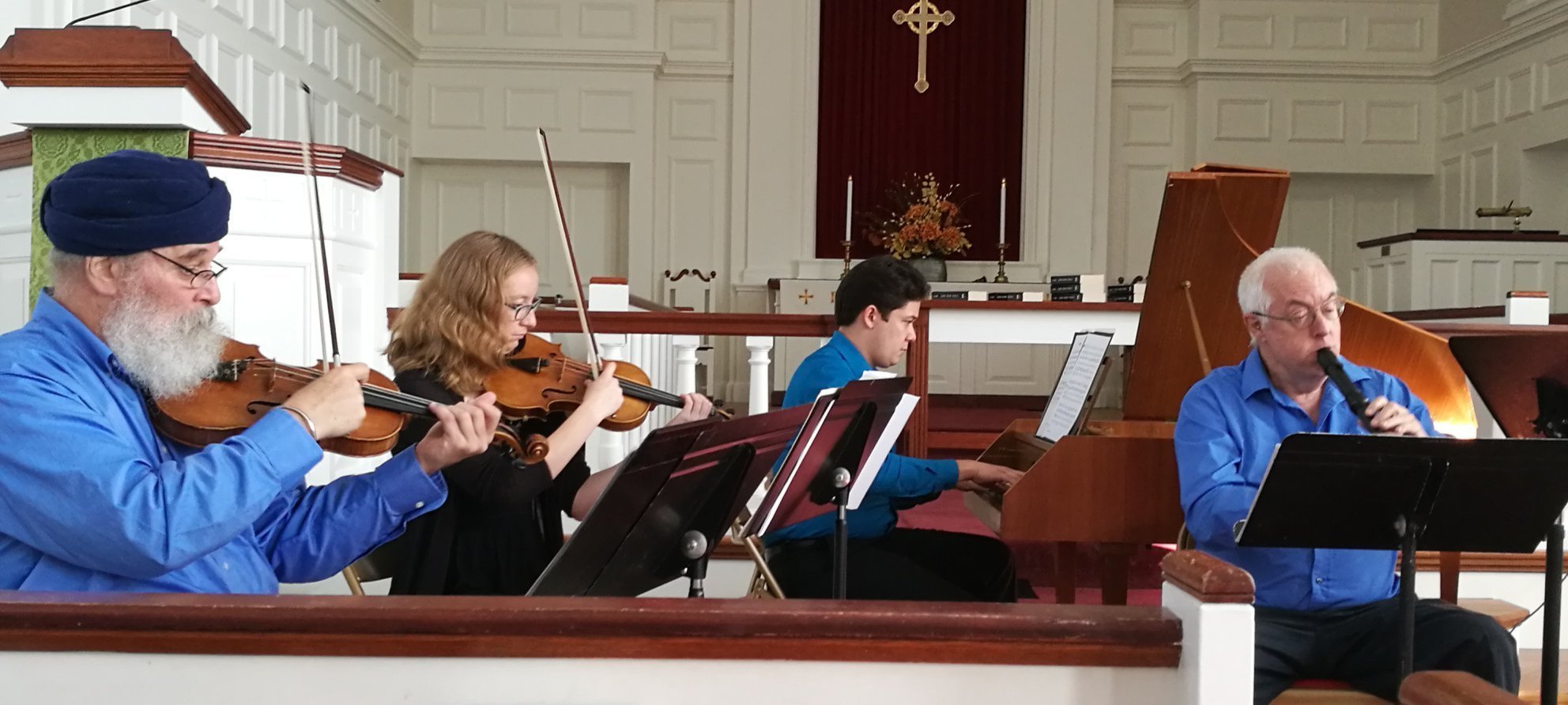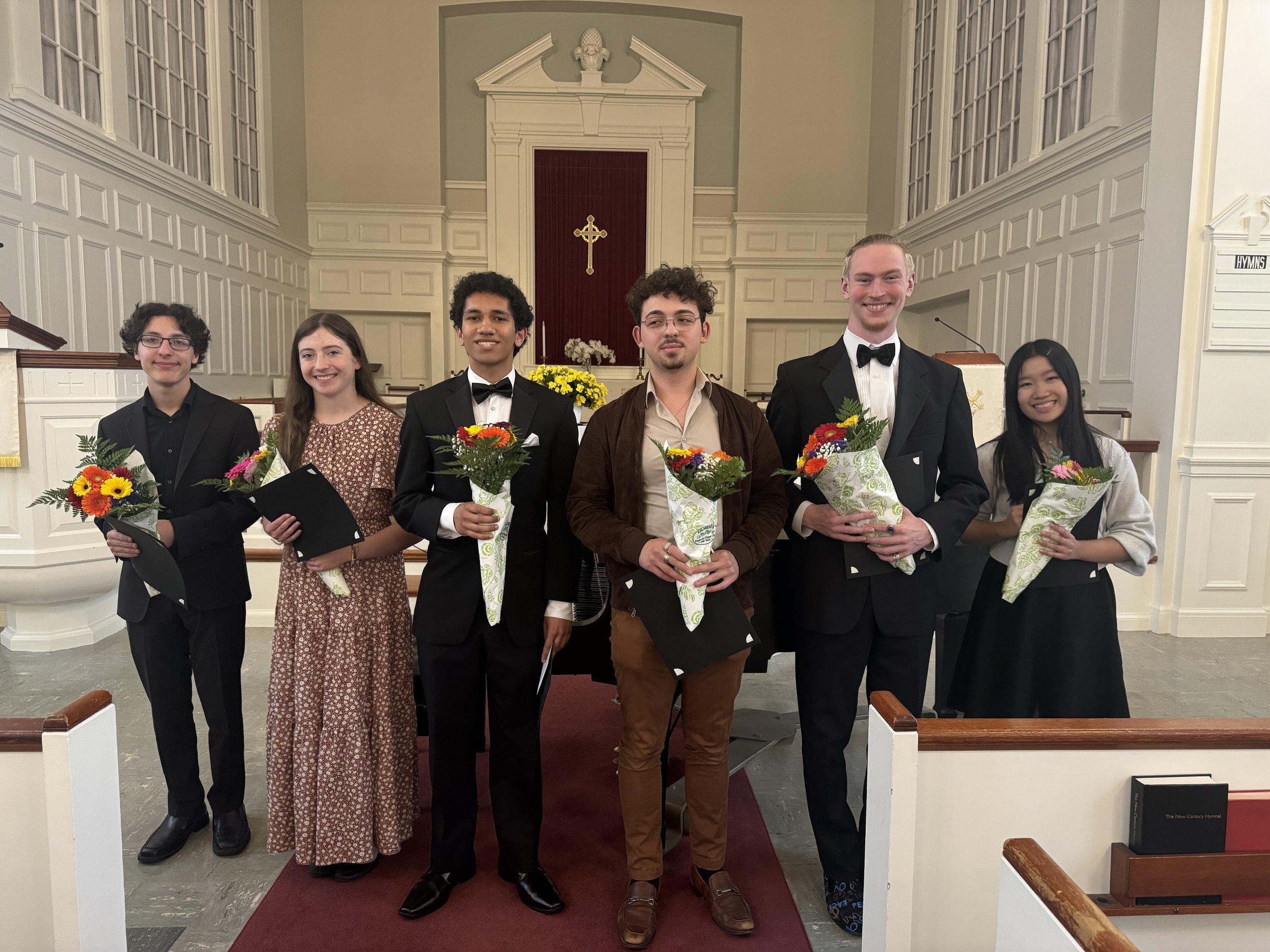Beethoven Society Returns for 98th Season of Free Concerts

Photo From The Beethoven Society of Melrose
The Beethoven Society of Melrose will launch their 98th season with a free concert at Melrose Highlands Congregational Church this coming Saturday, September 21st, at 3 pm. This concert, the first of eight free concerts the Beethoven Society will put on this year, will feature music by Bach, Brahms, Piazzolla, and Schumann performed by Norma Floyd on viola with pianist Wayne Ward, and Lazar Kaminsky on cello with pianist Eva Ostrovsky Kaminsky.
The Beethoven Society was formed in 1927 by a group of Melrose musicians, some retired professionals, and others gifted amateurs, who began performing for one another in each others’ homes. Word about these performances spread, and soon the gatherings became too large to hold in peoples’ homes, and shifted to spaces that could accommodate a larger audience. The format shifted from regular meetings to a concert season, but the objective remained: providing opportunities for musicians to perform and for the public to enjoy those performances.
Kristyn Taylor, who is now in her third season as president of the Beethoven Society, shared that, as the Beethoven Society has returned to live performances following the pandemic, her focus has been on making the society’s performances accessible to everyone in the community. “People think it’s this upper echelon club that only certain people get to belong to,” she said, “but our main focus has been this is part of humanity - all of us being connected as humans.”

Photo From The Beethoven Society of Melrose
“It can be this incredible experience you’re having, in the room with other people,” Taylor went on, “and we lost that during COVID. Nothing can copy the feeling you have when you’re experiencing a piece of music that moves you to tears or warms your heart. We’re very happy to get back to that.”
For musicians, performing in a Beethoven Society concert can provide the opportunity to be more creative and branch out with new repertoire. “People think, ‘It’s the Beethoven Society. Do I have to perform a Beethoven piece?’” said Taylor, “but it’s not just Beethoven or even necessarily just classical music. If you have something to say with your music and you want to come in and have the opportunity to perform, we’re happy to have you.” While many of the performers are classically trained musicians, Taylor shared that they’ve had musical theater groups, musicians who perform in improvisational styles, and even a 70’s folk music performance, complete with love beads.

2024 Winners of the Almost Carnegie Hall High School Competition
Photo From The Beethoven Society of Melrose
One aspect of the Beethoven Society that makes it stand out from many other arts organizations is that all of their concerts are free. A grant from the Melrose Cultural Council covered space rental fees and other costs, so donations taken at the door of each concert go toward prizes for the annual high school competition held at the end of the year.
Almost Carnegie Hall, the annual high school competition, is intended to provide graduating seniors who are interested in pursuing music in some capacity with the opportunity to perform in front of a live audience and judges, get feedback on their work, and, for the winners, receive some money to help them get started on their degree program or whatever they intend to do after graduation. The Beethoven Society has brought in judges from The Juilliard School, Berklee College of Music, and Longy School of Music, as well as orchestra conductors and other prominent musicians. The judges are able to provide each student with constructive feedback, which doesn’t always happen in auditions or other competition settings.
Taylor shared that, under her leadership, the Beethoven Society’s main goals are to make their concerts more accessible to the community and provide more support for the development of young musicians. To that end, they have been collaborating with the Milano Center on increasing access to the concerts for Melrose’s senior population, and are looking at expanding their young protégé program, which supports high school students, to include a young artists’ program for college students as well.
“Everyone who wants to come, is welcome,” Taylor emphasized, including people who aren’t musicians or don’t consider themselves “music people.” “You have to start somewhere,” she said.

Follow Us: